George Washington is arguably the most important figure in American history. He came into fame during the French and Indian War and then led the Continental Army during the American Revolutionary War.
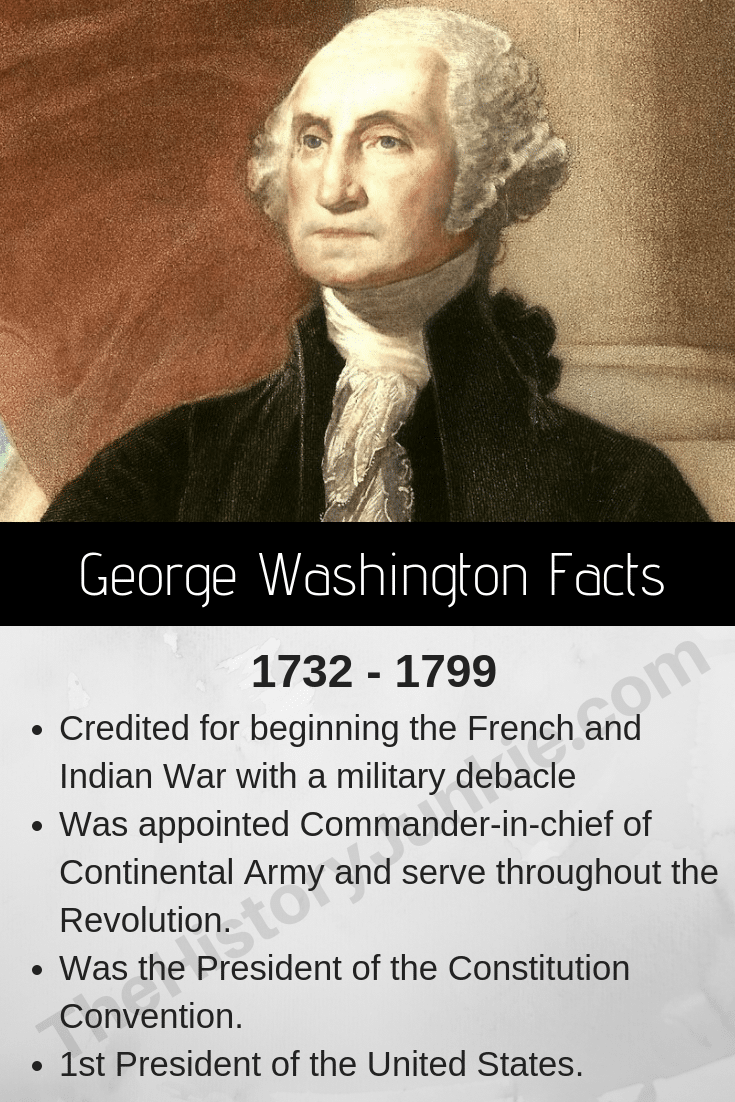
Afterward, he gave back the power of the army to Congress and retired. He was then elected President of the United States in 1788 and served two terms in which he once again retired, this time for good. Americans loved him, and leaders throughout the world were in awe of him.
He drew the accolades of Napoleon Bonaparte when Napoleon said, "They wanted me to be George Washington, and I wasn't."
While Washington's legacy is still remembered by many, most don't know who he is. They know about him but don't know the man behind the title.
George Washington's view of power, success, and religion was in themselves revolutionary. His understanding of his weaknesses and willingness to not only acknowledge them but to staff around them shows remarkable self-scrutiny and self-discipline.
Jump to:
Early Life and Education
All of Augustine Washington's sons were sent to England for their education, but Augustine passed away when George was 11 years old, which prevented him from crossing the Atlantic.
Afterward, his older brother Lawrence took him in and raised him as a son. He would inherit Mount Vernon from Lawrence after his death.
Washington received an early elementary education. He planned on joining the Royal Navy at the age of 15 but didn't after his mother found out how hard it would be on him.
Lawrence was connected with a wealthy Fairfax family and was able to secure a surveyor job for George.
In 1751, Lawrence was suffering from tuberculosis, and in the last effort to get rid of the disease, he and George sailed to Barbados. Along the way, George contracted smallpox and was able to survive it.
The disease left his face scarred but also made him immune to the disease, which would serve him well in the military. Lawrence passed away in 1752. George would receive his first military commission after Lawrence's death. He would also join the Freemasons.
The French and Indian War
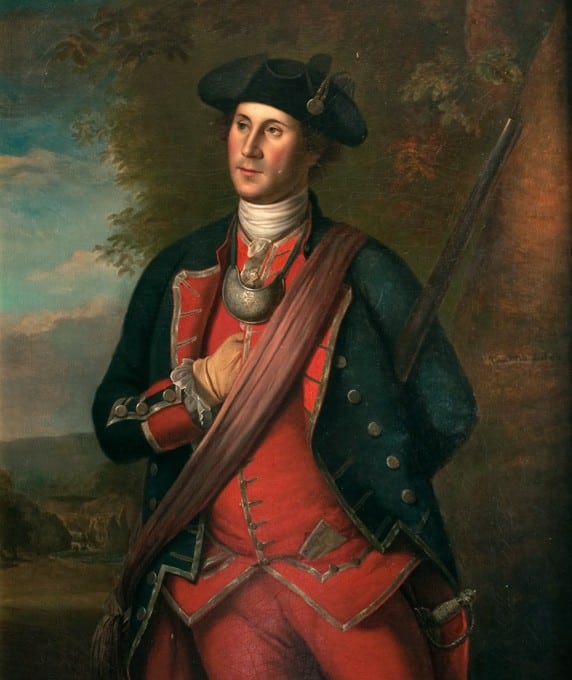
George Washington was at the center of the French and Indian War. The French had begun to try to expand.
When this began to happen, Washington was sent by Governor Dinwiddie to give a message to the French Commander that showed British claims of the land that the French were expanding into.
Along the way, he became friends with Tanacharison, an influential Indian leader, and tried to secure an alliance in case War was to break out.
The French would politely refuse to leave, which resulted in General Dinwiddle sending Washington back on a 2nd trip to help support an Ohio Company that was building Fort Duquesne near modern-day Pittsburgh.
A small French detachment would be discovered by Tanacharison, and Washington would attack them by surprise. The attack left Jumonville dead. The French retaliated by attacking and capturing Washington at Fort Necessity.
He would be allowed to return with his force. These events had international consequences and resulted in the French and Indian War, also known as the Seven Years' War.
Washington was with General Edward Braddock when the French ambushed them at the Battle of the Monongahela. The ambush was a disaster for the British.
General Braddock was mortally wounded, and the British were never able to get their bearings enough to fight back. Washington bravely rode up and down the battlefield, rallying the British and Virginia troops to an organized retreat.
In 1755, Governor Dinwiddle promoted Washington to" Colonel of the Virginia Regiment and Commander-in-Chief of all forces raised in His Majesty's Colony."
This was the first full-time military unit in the American colonies. Washington was charged with protecting the frontier. He fought 20 battles in which he lost one-third of his men.
He successfully defended the frontier, and Virginia took fewer casualties than any of the other colonies during the war.
Colonel Washington would take part in the Forbes Expedition and then retired from the military afterward
His experience in the French and Indian War gave him knowledge and insight that he would need in the American Revolutionary War.
He learned British tactics, logistics, and strategy. Although he was never granted a British commission that he wanted, this experience would set up him to lead the Continental Army later in his life.
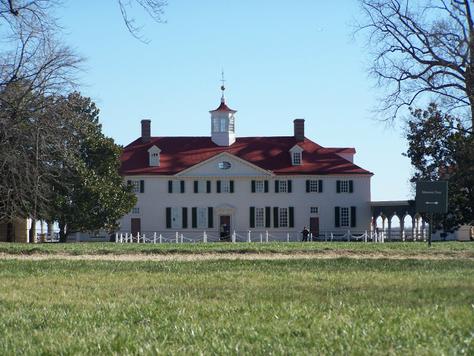
Marriage and Mount Vernon
George Washington fell in love with Sally Fairfax and wrote her a love letter during the Forbes Expedition. Their love did not last.
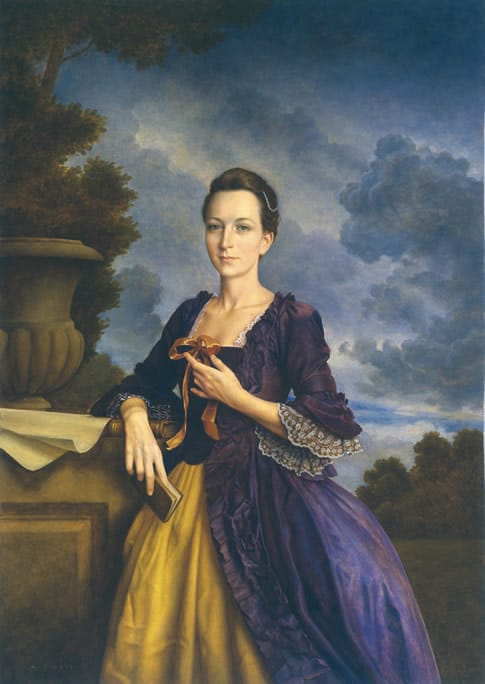
When he returned from the war, he married Martha Custis, one of the wealthiest widows in Virginia.
He and Martha had a strong marriage, and nothing ever came of him and Sally.
Sally and her husband, George William, were the most frequent visitors of Mount Vernon until 1773, when they returned to England. There, they stayed until they died.
Washington's marriage to Martha greatly increased his social standing. He became one of the richest men in Virginia.
In 1758, he was elected to the House of Burgesses
He was a successful planter of tobacco, but in 1766, he began to switch from tobacco to wheat. He also began to diversify his crops, which helped pull him out of debt.
Mount Vernon became a place for flour milling, fishing, horse breeding, spinning, weaving, and, in the 1790s, Whiskey production.
By 1773, he had paid off all his debts due to his innovation at Mount Vernon and an inheritance from Patsy Custer.
He lived the life of an aristocrat and tried to keep his distance from people whom he considered beneath him. He did treat everyone with respect, but his friends were the more affluent in society.
American Revolutionary War
He was in opposition to the Stamp Act but did not become involved until the Townshend Acts. He proposed legislation that was written by his friend George Mason that would boycott British goods.
The Townshend Acts were repealed in 1774. The Intolerable Acts were put in place in 1774. This would infuriate Washington and push him to want complete Independence from Britain.
This would lead Washington to serve as a delegate to the First and Second Continental Congress.
At the Second Continental Congress, he showed up wearing a military uniform. John Adams nominated Washington for Commander-in-chief.
This was a shock because many believed that Adams was going to nominate John Hancock, who was also from the Massachusetts Bay Colony. Benjamin Franklin agreed with the nomination.
General Washington assumed command of the Continental Army in Cambridge, Massachusetts, during the Siege of Boston.
During the standoff, he was able to organize his troops. One of his fellow officers, Henry Knox, devised a plan to bring artillery into Boston from Fort Ticonderoga.
He succeeded, and Washington placed the artillery on Dorchester Heights. This forced the British to retreat from Boston.
In August 1776, the British attacked Long Island. Washington was met with defeat at every battle that took place there. He made a daring retreat to escape General Howe, which saved the war.
These were some of his darkest times, and many began to question whether he should lead the Continental Army. Among them were Benjamin Rush and Horatio Gates.
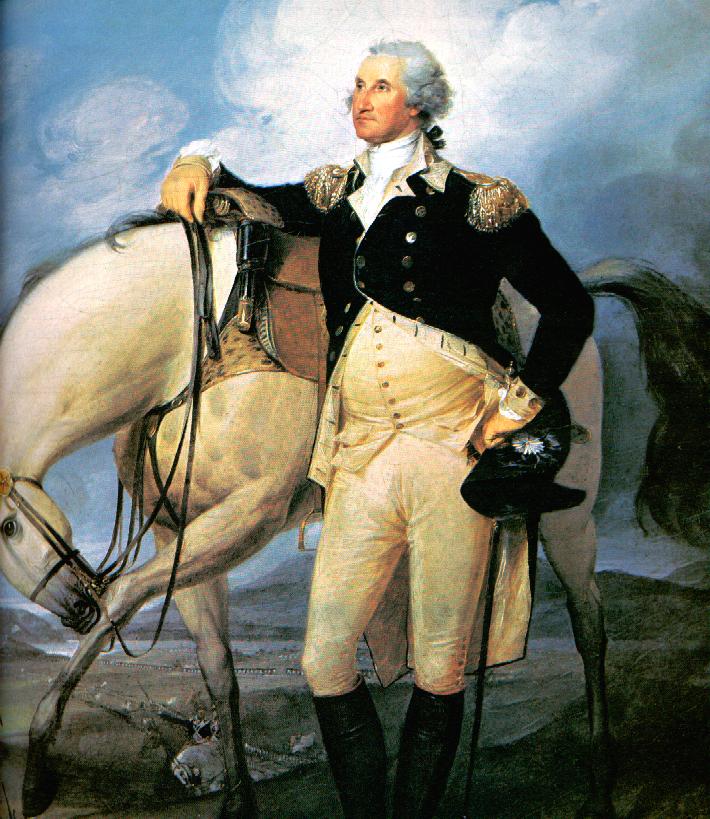
With Army enlistments running up and his leadership in question, Washington went on the offensive and attacked Trenton and Princeton.
These quick attacks raised morale and gave him job security. Cornwallis would go on to say that Washington's finest moment in the American Revolutionary War was the Battle of Trenton.
Washington engaged Howe at Brandywine and Germantown. He would lose both battles, and the British would take control of Philadelphia. However, Burgoyne lost the Battle of Saratoga and the entire war shifted.
After the Battle of Saratoga, many began to question Washington again. The Conway Cabal began to pick up steam, and they were asking for Horatio Gates to lead the army.
Washington's supporters rallied behind him and secured his job. Gates was given control of the Southern Army.
Gates would end up retiring in disgrace for his failure in the Battle of Camden. Congress then allowed Washington to choose the next General of the Southern Army. Without hesitation, he chose Nathanael Greene.
In the Winter of 1777, Washington hired Baron von Steuben to train his troops.
The Prussian drill sergeant whipped the Continental Army into a formidable opponent. When the British left Philadelphia, Washington engaged them at Monmouth. His new army would fight the British to a draw.
This was a major victory for Washington as he was able to shame Charles Lee, one of his staunchest opponents, and Lee would be forced to retire.
In 1781, the British surrendered at Yorktown. Cornwallis was ashamed and would not leave his quarters.
Washington was able to squash the Newburgh Conspiracy, and the Treaty of Paris would be signed a year later. The British recognized America as an Independent nation.
Washington's finest moment came after the British evacuated New York. Upon evacuation, he met with his officers at Fraunces Tavern. Here, he bid them farewell and returned the Army back to Congress.
This act stunned all the nations in Europe since Washington was the most powerful man in America.
Many historians believe this was the defining moment of Washington's life. Never in history had such a powerful figure given power to the people.
In 1787, he presided over the Constitutional Convention.
Presidency
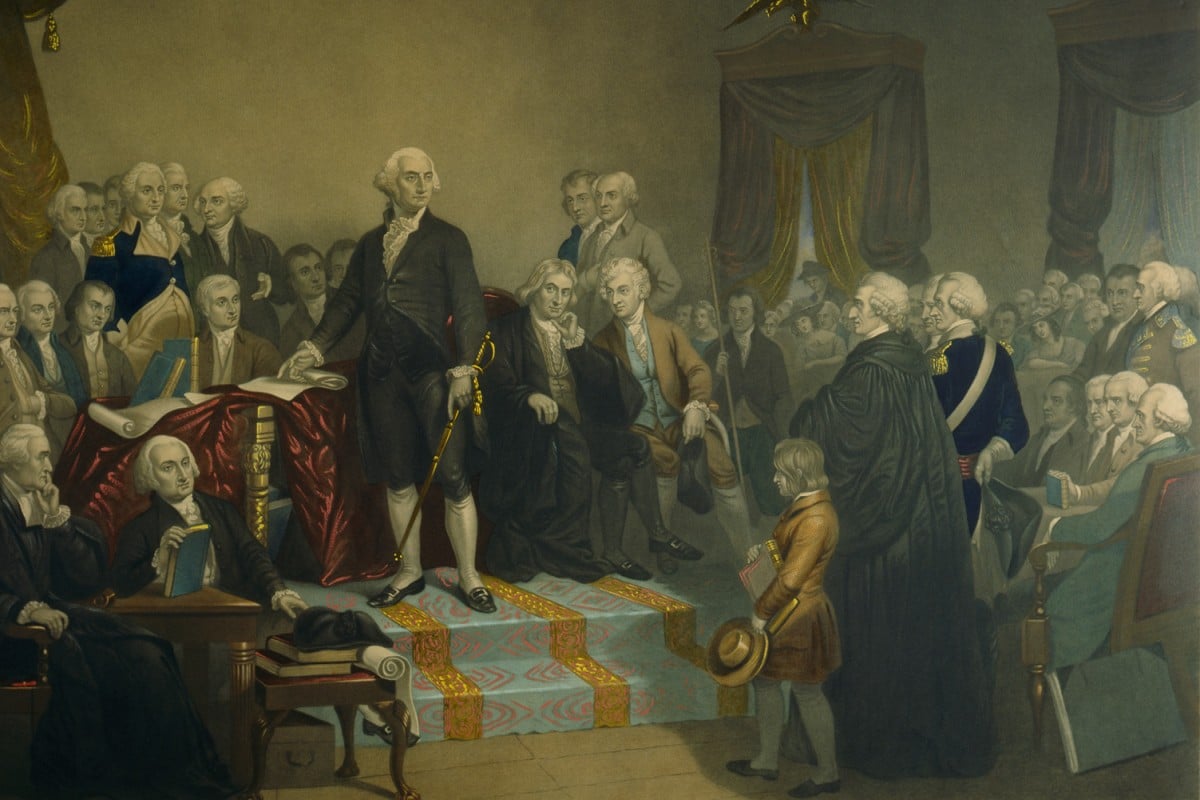
Washington was the only American President to be elected unanimously.
Washington despised political parties and kept an open mind with his cabinet. He made Alexander Hamilton head of the Treasury, and Thomas Jefferson was the Secretary of State.
John Adams would serve as his Vice President. Alexander Hamilton would form the Federalist party, and Thomas Jefferson would be head of the Democratic-Republicans.
Congress placed a tax on distilled spirits. This made many on the frontier angry and resulted in the Whiskey Rebellion.
The federal army was too small to squash the rebellion, so Washington invoked the Militia Act of 1792. He then led a large force of men to put down the rebellion. The rebels did not fight, and the rebellion was over without a shot fired.
This showed that the Federal government had enough power to protect itself.
A major War broke out in Europe. Washington, knowing that the new country was weak, proclaimed the United States of America as neutral.
A French ambassador, Citizen Genet, came to America and began to set up democratic societies in the city and issued letters of Marque to American men who would capture British ships. Washington distrusted French Illuminism and its Reign of Terror.
He denounced the societies and expelled Citizen Genet from the country. He then issued the Jay Treaty to normalize relations with Britain.
This infuriated Thomas Jefferson, who was pro-France and believed that America should back the French Revolution just as the French had backed the Americas. Washington sided with Alexander Hamilton and his pro-Britain policy.
Although Jefferson resigned as Secretary of State, Washington would be proven right when Napoleon rose to power.
In 1796, Washington retired from office. He served two terms, although he could have been elected for a third. This tradition of serving two terms lasted until Franklin Roosevelt.
Full Article: Presidency of George Washington
George Washington Facts: Retirement and Death
Washington's retirement was a sense of relief for him, and he continued his life of planting on Mount Vernon.
War with France was imminent, and John Adams called on George Washington to raise an army. Washington reluctantly agreed and placed Alexander Hamilton, one of John Adams's political enemies, in charge.
Washington came down with pneumonia and died due to bloodletting. The nation mourned his death, and even those in foreign countries mourned him. Napoleon took 10 days off to mourn the Death of Washington.
Henry Lightfoot Lee eulogized Washington the best when he said, "First in War, First in Peace, and first in the hearts of his countrymen."
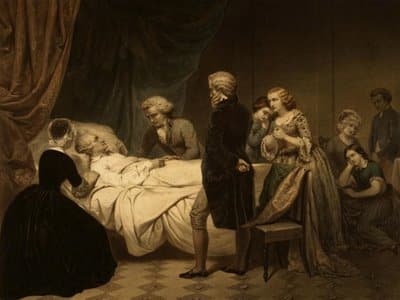
Online Resources
- Wikipedia - George Washington
- Was George Washington a Christian?
- Mount Vernon Official Website
- All Things Liberty - George Washington Archives
- Miller Center - George Washington
- White House Official Website
- George Washington the Indispensable Man
- Washington Surname Coat of Arms
- Presidency of George Washington
- The History Junkie's Guide to the American Revolutionary War
- The History Junkie's Timeline of President George Washington
- The History Junkie's Guide to the Signers of the Declaration of Independence
- The History Junkie's Guide to Colonial America
